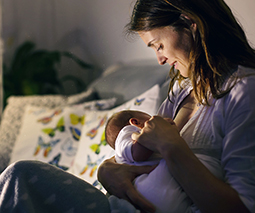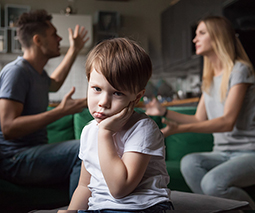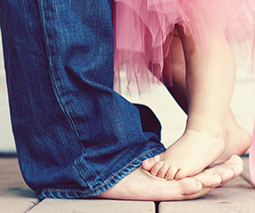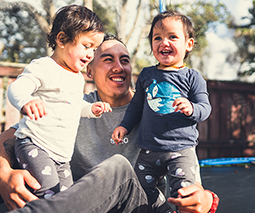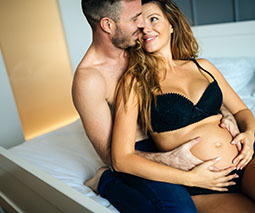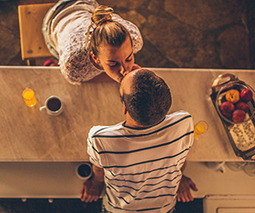What to do when you and your partner have different parenting styles

My best friend got married in a Catholic church, and part of the process involved counselling prior to walking down the aisle. They talked about a number of things, including children. At the time I thought it was a bit much. Why would you be talking about children before you got married? It seemed a consideration for much later down the track. Now I think it’s a conversation that every couple should have before they get serious.
The main questions being: do you want children? How many do you want? And how do you want to parent them?
Of course, this is not going to happen in real life. Who is going to ask these things when they’re falling in love? I certainly didn’t. And so, I find myself with two children and a partner who doesn’t share my parenting style.
Why previously compatible adults disagree about parenting
Child development expert Karen Young says that parenting brings its own baggage to the table.
“We tend to parent the way we were parented, at least until we learn other ways to do it. If you grew up in a family that made space for conversation, connection, warmth and understanding, even when you did things that weren’t adorable, you’ll probably approach your own parenting the same way. On the other hand, if you grew up in a family that had strict rules and little tolerance for veering off course, that will likely colour your own approach.”
Understandably, each parent can get quite riled up when parenting styles clash because for each parent, their way is the best thing for the child.
Why your differences can confuse your kids
Different parenting styles can confuse kids because it sets up different rules and expectations.
“It’s so confusing for our young loves who are already working hard to figure out how the world works,” says Karen. “Are big feelings tolerated? Not tolerated? Will they be yelled at? Gently guided? Held close? Shamed? Will someone help them find calm when they feel out of control? Or will they be sent away until they can behave?”
Given the kind of confusion our ‘right way’ of parenting causes kids, it’s up to the adults to find some common ground.
What to do when you have different styles
If you’re fighting about the best way to respond to challenging situations, Karen says you need to take five.
“During big emotions, the thinking part of the brain shuts down. The problem with this is that it’s the part of the brain that can find calm, problem solve and plan – it’s the part of the brain you want on board when you’re doing hard things.”
Once you’ve had a moment to calm down, you need to get together and discuss your parenting goals. Karen says that connection and influence are the key things that allow us to do our job as parents.
“What messages do you want your children to take from the way you respond to them when they get things wrong? Our children are always going to make mistakes. Harsh discipline won’t stop them from making mistakes – it will just stop them coming to us when they do. This is a big problem for us and a bigger problem for them, because it means we can’t be around to influence them and to guide them at the times they need it most. Given this, what is the best way to make sure that as parents, you each keep your influence and connection?”
There’s always time to work it out
I don’t think the answer is to change our parenting styles. I’m very wedded to my way of doing things, as is my husband.
But I have come to a greater place of peace. My kids are now old enough to know that my husband and I are different human beings, who disagree but still love each other, and love them too.
I now understand we have common goals, like teaching our kids to be good humans and to respect boundaries, we just have different ways of enforcing them. He’s a good dad, and I’m a good mum. We engender connection in different ways, which will hopefully open them up to our influence in the future.
In many ways, accepting our parenting differences has been just another lesson I’ve learnt in the process of raising our kids. And it’s one of many.
Karen says being able to see that we’re all capable of growing in this role, and with each other, is part of the process.
“The more we can act with patience, kindness and compassion, the more we can make way for each other’s point of view and bravely change course when necessary, the more we make it possible for our young ones to do the same.”

